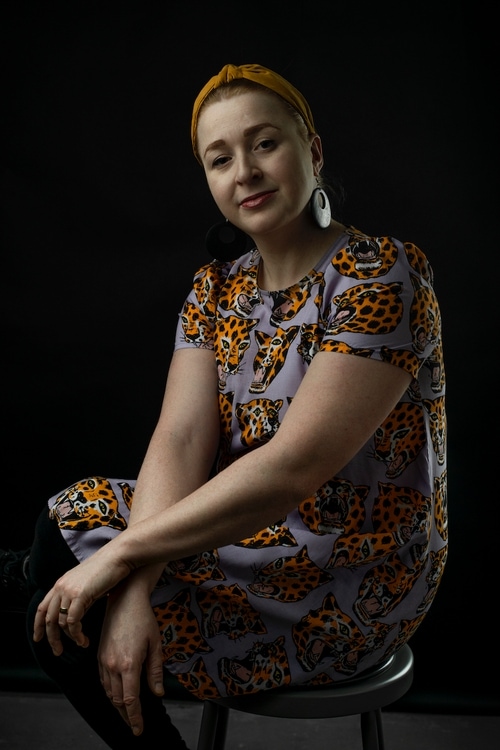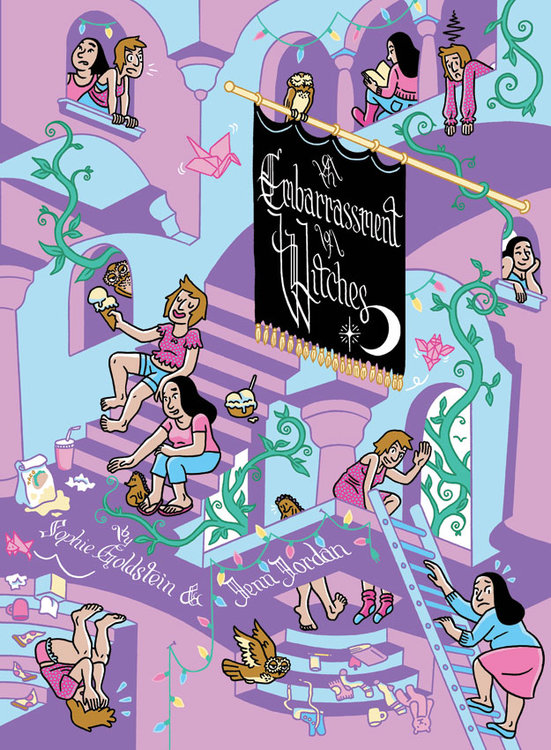You’ve been working on your comic for what probably seems like forever and finally, you feel that you are ready to share it with the world. Of course, you can always go the route of self-publishing, but that carries with it a number of obligations and expectations — printing, shipping, marketing — that you may not have the desire or the knowledge to take on. Thankfully, there are a number of amazing small press comics publishers who are constantly looking to expand their catalog and bring new voices into the world.
Unfortunately, though, as much as there are ethical publishers who want what’s best for the artists they publish, there are also bad actors who prey on the talents of young and new creators.
How do I move forward from an idea to a finished book? How should I approach the licensing of print and digital rights for my comics? Who owns the copyright for my work? How do royalties and advances work? There are a lot of questions about the publishing process, some of which are unique to comics, and some of which are standard areas of concern for working artists around the world.
Part of the goal of Fieldmouse Press, the nonprofit press that publishes SOLRAD, is to advance the comics arts. We see the continued social and economic success of cartoonists as integral to that goal. SOLRAD has devoted and will continue to devote resources to this area of focus.
To this end, we are running an ongoing feature at SOLRAD called KNOWING IS HALF THE BATTLE where we both feature an artist every week and ask for their advice about navigating the world of comics publishing, best practices for the business of comics, and other general advice.
For the initial interview series, Sarah Wray from Astra Editorial, who has worked with publishers such as Avery Hill, Liminal 11, and Breakdown Press, reached out to a number of cartoonists that she has worked with and provided them with the following prompting statements:
- The main thing(s) I expect from a comics publisher is/are…
- My #1 advice for submitting to agents and publishers…
- A sneaky red flag or shady thing I would warn new creators to look out for…
- I think it can be worth it to take a lower-paid illustration job in return for ___…
- If a publisher/offer seemed too good to be true, here’s how I’d check it out…
- An organization I’d go to for support if I needed advice or if something went wrong…
- My best tip for promoting your work online and at cons…
- To take care of your health / mental health as an artist, I recommend…
- I wish someone had told me ___ before I started working in the comics industry…
To add to the dialogue, we continue to reach out to cartoonists using this format. Today on The More You Know we’re featuring tips from Sophie Goldstein.

Sophie Goldstein is an award-winning graphic novelist, illustrator, and comics instructor living in Tulsa, OK where she is a Tulsa Artist Fellow. Her most recent graphic novel An Embarrassment of Witches from Top Shelf Productions is her second collaboration with Jenn Jordan. The book is currently being serialized on her Patreon.
Her other graphic novels include House of Women, a collection of the award-winning self-published mini-comic series from Fantagraphics, The Oven, from AdHouse Books, which won two Ignatz awards and was nominated for Slate Magazine’s Cartoonist Studio Prize, and Sophie’s first long-form comics endeavor, Darwin Carmichael is Going to Hell, co-written with Jenn Jordan, which was self-published with funding from Kickstarter in 2013. Sophie has also illustrated a children’s book, Poopy Claws, written by Gene Ambaum. Her comics and illustrations have appeared in various publications including New York Times Magazine, Best American Comics, Fable Comics, The Pitchfork Review, Cicada Magazine, and The Nib.
In her role as a comics educator and enthusiast, Sophie has spoken at her graduate alma mater The Center for Cartoon Studies, the Solstice MFA in Creative Writing Program, the University of Pittsburgh at Greensburg, Rutgers, the Chicago Institute of Art, and the Carnegie Public Library. She has also acted as a script consultant, student thesis advisor, and comics mentor at various schools and in private consultations. Currently, she is a core faculty member for Graphic Novels & Comics at Lesley’s University’s low-residency Creative Writing MFA program.
You can find out more about Sophie at her website and you can follow her on Twitter and Instagram.



Sophie Goldstein
The main thing(s) I expect from a comics publisher is/are…
Publishers exist to do the tasks that are either too difficult or too onerous for a cartoonist to handle. Primarily, to manage the printing of the book, which not only involves managing the layout and design of the book (I’m usually pretty involved in this process, but not all artists are), and coordinating the off-set printing which often happens overseas and then has to be shipped and stored in the US. Then the publisher distributes the books to retailers and promotes it to reviewers and readers, working with the artist to arrange bookstore appearances, interviews, and the like.
Coordinating printing, storage, and distribution are expensive and complicated tasks, and I’ve never had any issues with publishers fulfilling their roles in this regard. Book promotion, however, is often an area where I’ve found I had to be a lot of the heavy lifting myself.
Of course, publishers also handle giving out advances and distributing royalties (you know, the money artists need to live on), and that’s also a place I’ve experienced issues with low advances and delayed royalty payments. Some publishers are notoriously bad at paying royalties on time, but often it’s just a matter of negligence, rather than malice.
My #1 advice for submitting to agents and publishers…
Seeing the deals artists with agents get versus artists who don’t (like me), I would advise trying to get an agent, although I can’t tell you how to accomplish that. Talk to your friends that have one, perhaps? See who cartoonists thank in the backs of their books?
All of my relationships have been built through going up to publisher’s tables at shows and giving them my mini-comics and/or books with no expectations attached. Then, when I do eventually submit a book proposal to them, they are (hopefully) familiar with my work.
A sneaky red flag or shady thing I would warn new creators to look out for…
Ask your friends who have been published by a publisher you’re considering if they had a good experience. If you don’t have friends who have been published by them, track one of their authors down on social media and ask (really, it’s okay).
Even some well-known publishers can be not great to work with, and it’s good to know that going in so you can assess whether the brand name is worth the headache.
I think it can be worth it to take a lower-paid illustration job in return for ___…
If you’re interested in the subject or think it would be intellectually/artistically engaging. For me, even well-paid illustration jobs are usually more of a headache than the money is worth, so I try to judge ahead of time how miserable a job is going to make me and whether the money will compensate for that.
If a publisher/offer seemed too good to be true, here’s how I’d check it out…
Like I said above, do your research, ask around.
An organization I’d go to for support if I needed advice or if something went wrong…
I generally rely on my network of industry contacts to answer any questions and help direct me, and I’ve served that role for other people who needed help. If you really don’t have anyone to ask though then you can ask me. My email is redinkradio@gmail.com.
My best tip for promoting your work online and at cons…
This question makes me want to lay down on the ground and die. Putting that aside, though, I’d recommend printing out a shit ton of mini-comics and handing them out to artists you admire and publishers you like at shows. If they want to trade you something in return that’s rad, but don’t expect it. Be personable and nice, but don’t make demands on anyone or try to monopolize their time.
I know there are no in-person shows happening right now, but I have to hope they’ll come back someday. As for online promotion, go post something on Instagram I guess? Make it about your cat, or being an introvert. People love that shit.
To take care of your health / mental health as an artist, I recommend…
Once you make your hobby your career, it can start to take over your whole life. Get some new hobbies, preferably healthy ones that involve physical movement. I like rock climbing and yoga, personally.
Also, try to avoid having the book you’ve worked on for five years come out at the beginning of a global pandemic. That’s pretty depressing.
I wish someone had told me _ before I started working in the comics industry…
As if I would have listened.
SOLRAD is made possible by the generous donations of readers like you. Support our Patreon campaign, or make a tax-deductible donation to our publisher, Fieldmouse Press, today.

Leave a Reply